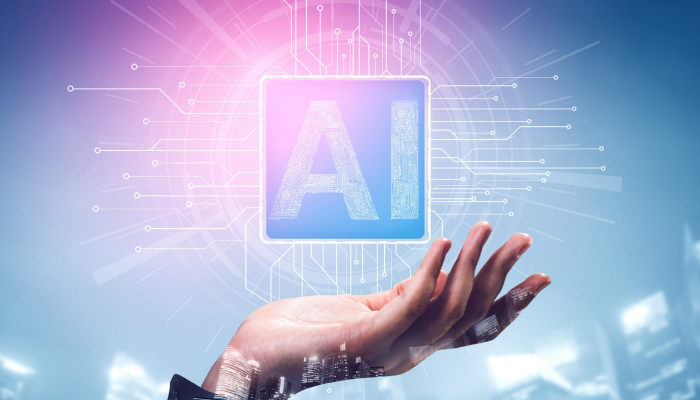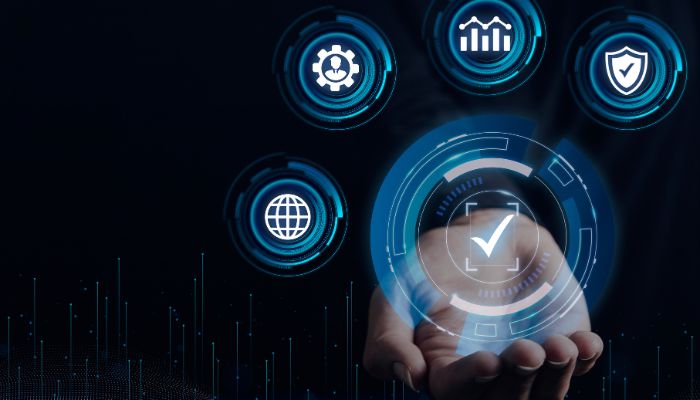Artificial Intelligence is a topic that divides everyone. Some are all for the automatic smart lifestyle. A lot of others are sceptical about its intrusiveness and invasions of our privacy. And then there’s a small bunch that thinks that Skynet can drive the world into a machine-ruled dystopia. There is a lot of resistance especially when there’s talk about integrating AI into a workplace. The popular view is that artificial intelligence and robots are going to replace the traditional workforce. While today’s AI carries out simple tasks, there is the apprehension that one day it could be advanced enough to make complex decisions. The apprehension is justified but there are two sides to this coin.
The applications of AI and machine learning are limited to simple tasks because of the physical precision that they offer while also speeding up production. Automation technologies have proven to be better workers on a factory line. So, one could argue that they are taking jobs away from us. But those are jobs that are physically taxing, monotonous, potentially dangerous and at times inhumane. If AI and robots can perform those simple tasks, it gives humans a chance to perform creative tasks and make strategic decisions. In fact, many believe that an integrated workforce will create new job opportunities. Come to think of it, data-centric jobs did not exist a couple of decades ago. Today, a variety of intelligent software gives entrepreneurs access to a diverse set of tools. Businesses need experts to use those tools to analyse, process and use data. That’s how careers opportunities have boomed in the digital age. Pedro Uria-Recio (Group Head of Data Analytics and AI at Axiata) argues, in his TEDx talk, that AI and other technological transformations will not dehumanize the modern workplace, rather it will humanize it. By automating quantitative and process-oriented tasks, there is more scope to deal with tasks that are ambiguous and which require empathy, social skills, creativity and emotional intelligence. Companies can focus on people problems and achieve greater client/customer satisfaction.
You might also be interested to read: In Demand Skills In India
AI integration is the inevitable future of work, and its purpose is to augment human capabilities rather than substitute human employees entirely. Working in tandem with an intelligent program allows employees to be more efficient. Machine learning can identify key processes and patterns and make predictions or suggestions based on the data it collected. It’s a tool like the predictive text in your smartphone keyboard or the suggestions column of your Netflix account. To send that text or watch that show is your decision alone. AI can only make suggestions, not decisions.
In today’s workplace, artificial intelligence is mostly used to simplify administrative tasks or sift through huge amounts of data and detect patterns. X.AI is a personal assistant tool that analyses emails to find the best time to schedule meetings and events based on everyone’s availability. AI Sense on Zoom automatically transcribes what everyone says during meetings and makes the conversation available as searchable text.
AI programs are also being used to minimize recruitment challenges when it comes to finding the right talent. Highly sought-after companies screen thousands of applicants using AI programs. Pymetrics is one such program that uses a series of games based on the principles of neuroscience in order to understand the applicant’s cognitive and emotional qualities; it then suggests roles best suited to their strengths. This levels the playing field for all applicants by doing away with unconscious racial, demographic, socio-economic and gender biases.
Honeywell’s Connected Plant found that when experienced employees left or retired, they took with them a great amount of valuable knowledge. Through machine learning and AR/VR technology, they found a way to retain the knowledge of experienced employees and transfer it to new recruits. Employees wear HoloLens AR headsets that capture everything they do. This information guides new employees by giving them a first-person VR view of the tasks they need to perform.
In the field of medicine, AI and robotics are being used to diagnose and treat medical conditions with extreme precision. In fact, machine learning played a great role in developing vaccines for Covid-19 in such a short span of time. It could analyse a great amount of biomolecular data from a database of pathogens and streamline the creation of a vaccine.
We’ve clearly established that AI is going to bring about a series of workplace changes. But no discussion about smart technology and artificial intelligence is complete without considering the ethical ramifications of it. In the age of facial recognition, voice activation and biometric security, surveillance is easier than ever. Large tech companies are often viewed as a Big Brother of sorts because it takes tons of input data for programs to analyse and learn. Apps designed to track employee metrics can collect data through emails, chats, audio, video and biometric devices like fitness trackers. This could be misused to monitor conversations between employees, track their movements and even their bathroom breaks. In an attempt to identify and improve areas of inefficiency, workplaces could leave their employees feeling rather unsettled.
The pinnacle of artificial intelligence is to make it feel more human. In Sundar Pichai’s 2018 unveiling of Google Duplex, the famous virtual assistant booked an appointment over a call pretending to be a human complete with all the subtle expressions that we use in our speech. The person on the other end could not distinguish the AI from a human being. While it was impressive, it just goes to show the line between AI and humans can be blurred. This can lead to widespread mistrust, miscommunication and potential misuse. An AI-enabled future needs to be a transparent one. Automated programs must identify themselves as bots, allow users to choose if they want to interact with the program, give them the freedom to refuse being recorded and provide an option to talk to the concerned person instead. Lastly, AI must never be used to outsource the interpersonal interactions that make us human.
Reference: “Automatic for the people? Experts predict how AI will transform the workplace” | SA Mathieson | 18 July 2019
You might also be interested to read:
Related Topics:






